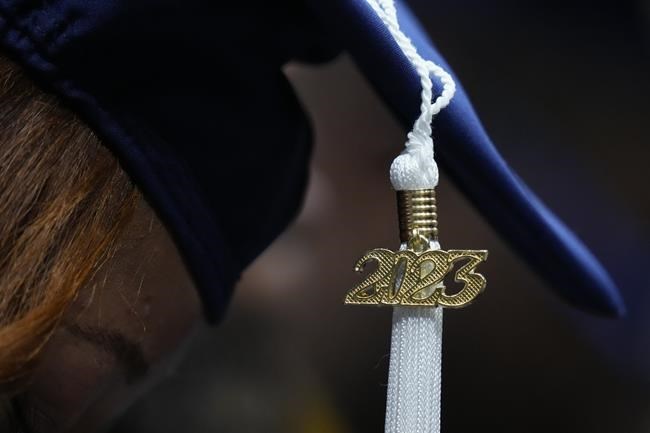Going back to school can be a great way to accelerate your career, whether it’s getting a master’s degree or taking a certificate program to add more skills to your repertoire.
But it’s also a major financial decision, as school isn’t cheap — especially when it could pull you away from your job.
That’s why some choose tocontinue working and go to school part-time.
Omar Jamal did just that last August. He kept his job at Scotiabank and started working on an MBA part-time in the hopes the degree will accelerate his career at the bank and expand his options in the future.
This way, the cost of the program is spread out over a longer period of time, and he doesn’t have to give up his income, explained Jamal.
“It’s an investment in yourself, and one that I believe ... was worth it,” he said.
Others choose to leave their jobs and do school full time, like Paige Kezima.
Kezima had wanted to get her master's for years, but was held back by the cost, choosing instead to keep working full-time. But when she inherited some money after her father's death, she realized she could finally prioritize the philanthropy degree she wanted to do.
She left her full-time job for the program, which was a difficult decision, as it meant giving up a salary. She took on a part-time job to help cover some expenses.
But like Jamal, Kezima sees the program as an investment in her future.
“It was really scary. But I don't regret that decision at all, because I think in the long run, this will be something that will create more sustainability within my life."
Before deciding to go back to school, experts recommend taking some time to consider why you want to go back.
“Give it a year to save up some money, because then that also gives you the time to do that proper research,” said Jessica Moorhouse, a financial educator and host of the More Money Podcast.
That research can include speaking to people who have done the program, said Moorhouse.
In order to determine whether the program is a good fit, consider starting off part-time, or even taking a single course before going all in, she said.
“If you can dip your toes in, take one course if possible to see, is this right for me?” she said.
Consider taking a program you can do online, said Moorhouse, which can save money on things like transportation. You can also look for more affordable programs based in other provinces that you can do remotely, she said.
If you're working full-time, you may be able to take a leave from your job instead of quitting, said Moorhouse, or drop down to part-time.
If the education you’re pursuing is related to your career, consider talking to your employer because they may actually be able to help you, said Angela Iermieri, a financial adviser at Desjardins. Some workplaces help pay for tuition, while others allow you to defer part of your salary so you can receive it while you’re on leave.
If you decide to work while going to school part-time, that will help financially but the trade-off is your degree or certificate will take much longer, said Iermieri.
“Do you want to get this done fairly quickly, or do you want to extend your studies so that you don't have to reduce your income?” she said.
Once you’ve decided on a program and whether to keep working, it’s time to make a financial plan, said Iermieri. Factor in not just the cost of tuition, books or other supplies, but also the cost of not working, or of working less.
Make sure your plan also includes a “buffer” of at least 10 to 15 per cent, said Iermieri, for any surprises that come up.
Once you have your budget down, try living with it to see if it’s sustainable, she said.
“In reality, there's always something that could come up,” she said.
“Estimate the cost and live with that budget for a little bit. It will give you a better idea than just jumping into the project.”
There are financial resources out there to help you cover some costs, said Iermieri, such as government grants.
There’s also the Lifelong Learning Plan, she added, where you can withdraw up to $20,000 from your Registered Retirement Savings Plan over four years. Later, those RRSP withdrawals must be repaid.
Many people aren’t aware of this option, she said.
If going back to school will eventually help you increase your income and give you better benefits in the long term, then this could be worth it, said Iermieri.
Kezima said she wishes there were more resources out there to help people approach such a major financial decision. Some of the advice she found online seemed very one-size-fits-all, she said.
“It also assumes a lot of knowledge about financial literacy,” she added.
One thing Kezima had to consider that many others don’t was the cost of health care. As a person with a disability, her monthly costs are high, and a significant portion aren’t covered by her student plan.
“I think that there's an assumption that folks that have an undergraduate degree or some form of previous post-secondary education, that there's this knowledge about budgeting and finances and setting yourself up for your degree and all that stuff,” she said.
“But I don't really think that's the case. I think that's just an assumption. So I think around financial literacy, there could be a lot more offered.”
This report by The 91原创 Press was first published May 16, 2024.
Rosa Saba, The 91原创 Press



